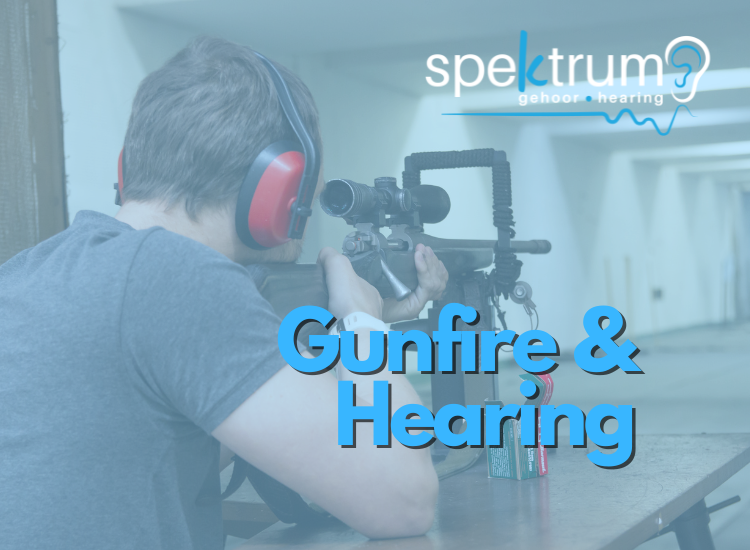
The blocked ear opens up a few days later and you feel a sense of relief that you ‘dodged a bullet’ there but the problem is, that the damage has already been done. We all know that the loudness of a gunshot can cause permanent hearing damage, but do we really understand the extent of this damage? The innermost part of the ear contains the hearing organ, the cochlea. This hearing organ is a complex structure and amongst other structures, contains hair cells. The human ear contains around 3 500 inner hair cells and 12 000 outer hair cells in this hearing organ which is around the size of a pea. When these hair cells get damaged by loud sounds, impulses cannot be conveyed to the brain. This hair cell damage is permanent and cannot be reversed.
The average unsuppressed gunshot ranges from 140dB to 165dB, depending on the make, model, calibre, barrel length and type of ammunition used. The mechanism that causes the sound of the gunshot is the muzzle blast which occurs when high-pressure gases within the barrel are suddenly released and rapidly
expand when the projectile exits the muzzle. A typical muzzle blast generates a shock wave of louder than 140dB.
Various aspects influence the loudness of a gunshot. Some of these are the area where the gunfire takes place; the position and proximity to the firearm; the load intensity of the ammunition and type of propellant that is used; and the environmental temperature. A shorter barrel length typically causes a louder gunshot. For more powerful calibres, the higher the volume of gas escaping the muzzle, coupled with the velocity at which it escapes, the higher the volume of the gunshot. And, a muzzle brake can add up to around 10dB to the sound level. Silencers can suppress firearm noise by an average of around 30dB but it is still not acceptable to use a silencer without hearing protection. Although historically, there are some reports of firearms with an output of over 200dB, today the .460 Weatherby Magnum with an 18″ barrel and a muzzle brake is most likely the loudest firearm you will get with an output around 170–180 decibels.
…continued….
Read the Full article here: Gunfire and your Hearing – Magnum Aug2021 (2)
